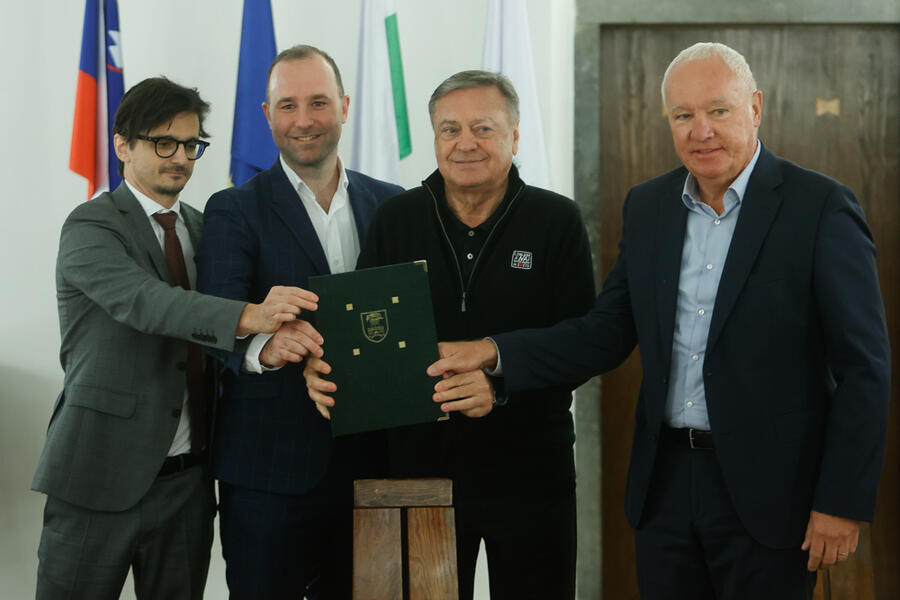Building a community of solar power plants
On Tuesday, 17 October 2023, at the City Hall, we and our partners signed a contract for the project titled Green energy on the surfaces and facilities of the City of Ljubljana, within the framework of which we will set up solar power plants on the facilities in the ownership of the City of Ljubljana.
The public-private partnership between the City of Ljubljana and the companies RESALTA d.o.o., RES ERP d.o.o. and Energetika Ljubljana represents an extraordinary step forward in our efforts towards a sustainable future for our city.
The basic idea of the project is comprised of the installation of solar power plants on public buildings, followed by a comprehensive service provided by the private partner to the City of Ljubljana and its public institutions: supply with green energy produced on public buildings, management, regular and investment maintenance of the devices and the supply of electricity shortages.
We will install 51 solar power plants
We will install 51 solar power plants on the roofs of public buildings, including primary schools, kindergartens, health care centres and sports and cultural facilities, with a total capacity of almost 5 MWp, and the guaranteed annual production will exceed 5,200 MWh.
The value of the project is approximately 5 million euros. The duration of the concession contract is 17 years, and then the ownership of the solar power plants transfers to the City of Ljubljana. The project's added value is the monthly billing of electricity, the so-called »net billing«, which will enable the City of Ljubljana to use the excess solar energy produced within the billing month when there is an energy shortage.
Reasons for public-private partnership:
Community self-sufficiency
47 of the 51 solar power plants will be all connected into one large community that combines public buildings. This approach enables efficient use of energy resources and makes the project more sustainable. Together with monthly billing, this minimizes the possibility of a negative electricity price for the City of Ljubljana. This community will also be the largest in Slovenia to date.
Special method for subsidies
Using competitive dialogue, we designed a method that benefits the public partner in the case of obtaining subsidies (lowering the price of the service for the public partner). This method is an excellent way to adapt the project to changes concerning the various subsidies that have not yet been determined, while at the same time avoiding the risk of increasing the investment value that occurs when tendering for grants.
Price of electricity for shortages
The price of electricity for shortages, that is, for electricity that is not produced from installed solar power plants, was tied to the price of the supplier selected each time, in line with legal provisions. This ensures additional transparency and price stability in the project.
Transfer of risks to the private partner
Transferring most of the risks to a private partner means that this partner is responsible for managing various uncertainties, which increases the reliability of the project for the City of Ljubljana, where most of the uncertainties are related to the technical maintenance of power plants and the supply and sale of electricity (e.g., a negative price of electricity, building consumption profile, etc.).
Management and maintenance
The duty of the private partner to manage and maintain the solar power plants means that it is responsible for the uninterrupted operation of the devices during the entire concession period.
On the way to carbon-free Ljubljana 2030
With this project, we will contribute to reducing greenhouse gas emissions and ensure a sustainable and clean future for our city. In total, we will save over 2,500 tons of CO2 equivalent during the duration of the project, which is an amount refined by about 95,000 average-sized trees. A public-private partnership is an excellent example of cooperation between sectors that combine their strengths and resources for the common good. This project is an important milestone on the way to a more sustainable, responsible and green city.


